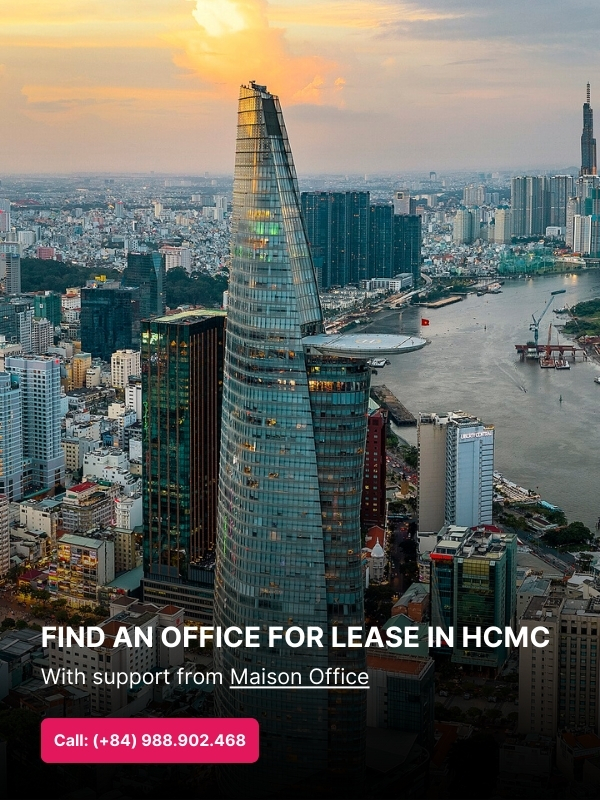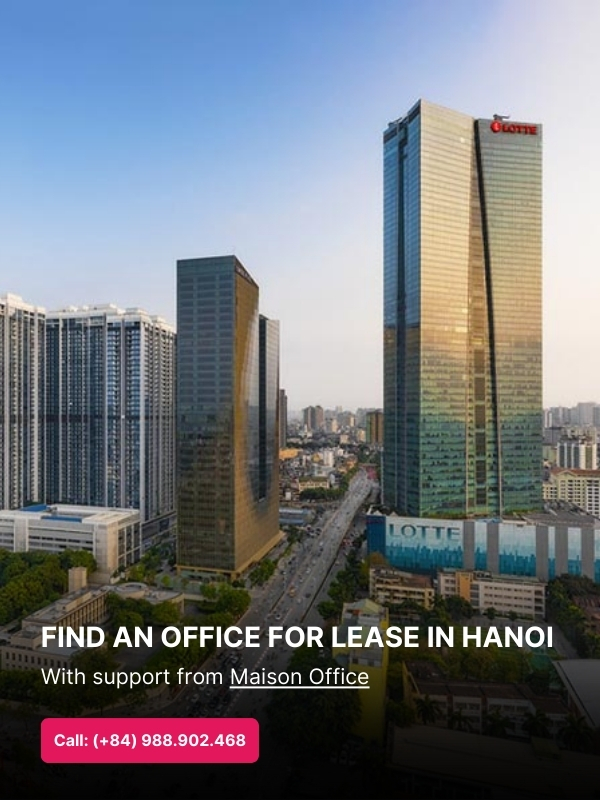How to set up an FDI company in Vietnam

Vietnam continues to be a top destination for foreign investment in 2026, thanks to its stable economy and open business environment. This comprehensive guide explains how to set up an FDI company in Vietnam, step by step, to help you enter the market with confidence.
 |
 |
Table of Contents
- What is an FDI Company in Vietnam?
- Entity types for foreign investors
- Step-by-Step process to set up an FDI company in Vietnam
- Step 1 – Choose the right business structure
- Step 2 – Prepare required documentation
- Step 3 – Apply for the Investment Registration Certificate (IRC)
- Step 4 – Apply for the Enterprise Registration Certificate (ERC)
- Step 5 – Open corporate bank account and inject capital
- Step 6 – Register tax code and obtain additional licenses
- Step 7 – Post-licensing compliance (HR, Accounting, Reports)
- FAQs – Foreign Company Registration in Vietnam
What is an FDI Company in Vietnam?
An FDI company in Vietnam refers to a business entity that receives capital investment from foreign investors to operate within the country. These companies are typically established by foreign individuals, organizations, or a combination of foreign and local partners under Vietnam’s legal framework for foreign direct investment (FDI).
There are three common types of FDI companies in Vietnam:
- 100% foreign-owned companies: Fully controlled by foreign investors.
- Joint ventures: Partnerships between foreign investors and Vietnamese entities.
- Business cooperation contracts (BCC): Collaborative agreements without forming a new legal entity.

Setting up an FDI company in Vietnam allows foreign investors to access a dynamic and rapidly growing market. However, it also requires compliance with strict regulatory procedures, including investment registration, business licensing, and sometimes sector-specific approvals.
Understanding the legal structure, market entry conditions, and compliance requirements is essential before deciding how to set up an FDI company in Vietnam effectively.
Lear more: Types of Companies in Vietnam
Entity types for foreign investors
100% Foreign-Owned Company
A 100% foreign-owned company in Vietnam is a legal entity entirely funded and managed by foreign investors, without the need for a local Vietnamese partner. This is a popular choice for investors seeking full ownership, strategic control, and direct profit allocation.

Foreign investors can establish this type of FDI company in Vietnam across various sectors – such as manufacturing, IT services, trading, and education – provided these sectors are not restricted or conditional under Vietnamese law.
Key advantages include:
| Advantage | Description |
| Full ownership | Foreign investors have 100% control over equity and management decisions |
| Profit repatriation | Ability to legally transfer profits abroad after fulfilling tax obligations |
| Brand independence | Operate under your own international brand without local ownership dilution |
| Intellectual property protection | Stronger control over trademarks, patents, and proprietary technologies |
| Global business integration | Seamless integration with global supply chains, systems, and strategies |
However, the setup process is more complex than for local companies. Investors must:
| Step | Description |
| 1 | Prepare investment proposal: Define business activities, capital structure, and location |
| 2 | Obtain Investment Registration Certificate (IRC) from the Department of Planning and Investment |
| 3 | Apply for Enterprise Registration Certificate (ERC) to legally establish the business entity |
| 4 | Open capital bank account and transfer charter capital as committed |
| 5 | Fulfill post-licensing obligations: Tax code registration, labor declarations, etc |
| 6 | Sector-specific licensing (if applicable): Required for industries like education, fintech, etc |
Joint Venture Company
A Joint Venture Company in Vietnam is an FDI company formed through a partnership between one or more foreign investors and local Vietnamese entities. This entity type is ideal when local market insight, existing distribution networks, or industry-specific licenses are crucial to success.

Joint ventures allow foreign investors to:
| Advantage | Description |
| Access to restricted sectors | Allows entry into sectors where 100% foreign ownership is limited by law |
| Local market insight | Leverages the Vietnamese partner’s experience, network, and cultural knowledge |
| Shared capital and risk | Reduces financial burden and distributes operational risks between partners |
| Faster regulatory approvals | Local partner can facilitate licensing and compliance processes more efficiently |
| Strategic collaboration | Combines global expertise with local execution for competitive advantage |
However, a Joint Venture also comes with shared decision-making and potential differences in management style or strategic direction. Therefore, having a clear Joint Venture Agreement (JVA) is essential to define:
- Capital contributions
- Ownership ratio
- Profit sharing
- Roles and responsibilities
- Dispute resolution mechanisms
For those exploring how to set up an FDI company in Vietnam, a joint venture structure is a strategic option to align global capabilities with local expertise – especially in regulated industries.
Representative Office
A Representative Office (RO) is the most basic form of foreign presence in Vietnam. While it does not qualify as a full FDI company in Vietnam, it is often the first step for foreign investors to explore the market, conduct research, and build local relationships without engaging in direct commercial activities.
Learn more in How to Set Up a Representative Office in Vietnam

Key characteristics of a Representative Office:
| Advantage | Description |
| Low setup cost | Minimal capital requirements and simplified licensing process |
| Risk-free market entry | No business operations, hence low financial and legal risk |
| Local presence | Maintains a brand and communication channel in Vietnam |
| Support for partners | Manages relationships with distributors, suppliers, or local clients |
| Tax exemption | No corporate income tax due to non-revenue-generating nature |
Comparison of Structures (Ownership, Control, Risks)
When choosing the right FDI company in Vietnam, foreign investors must evaluate the trade-offs between ownership, control, compliance, and operational flexibility. Below is a comparison of the most common entity types: 100% Foreign-Owned Company, Joint Venture, and Representative Office.
| Criteria | 100% Foreign-Owned Company | Joint Venture Company | Representative Office |
| Ownership | 100% foreign ownership | Shared between foreign and local partners | No ownership of business operations |
| Control | Full decision-making power | Shared control per Joint Venture Agreement | Operates under control of parent company |
| Legal entity status | Full legal entity | Full legal entity | Not a legal entity for business purposes |
| Revenue generation | Allowed to conduct commercial activities | Allowed to conduct commercial activities | Not allowed; no sales or revenue generation |
| Risk exposure | Full exposure (but full control) | Shared risks between partners | Minimal risk, limited to non-commercial ops |
| Setup complexity | High (licensing, compliance, capital requirements) | Medium to high (depends on partner & industry) | Low (simple documentation & fast approval) |
| Best for | Investors seeking full market entry and control | Sectors with ownership restrictions or local insight | Market exploration, brand presence |
Each structure serves a different investment intent. If your goal is to generate revenue and scale operations, then a 100% foreign-owned company or a joint venture is required. If you’re looking to study the market before making a major commitment, a representative office offers a low-risk entry point.
Step-by-Step process to set up an FDI company in Vietnam
Step 1 – Choose the right business structure
The first and most critical step in how to set up an FDI company in Vietnam is selecting the appropriate legal structure. Your choice directly impacts ownership rights, operational control, licensing requirements, and risk exposure.
Foreign investors typically choose among three main structures:
| Business structure | Ownership | Activities allowed | Best for | Legal complexity |
| 100% Foreign-owned company | 100% foreign ownership | Full commercial operations | Full control and long-term business operations | High (IRC + ERC required) |
| Joint Venture Company | Shared with local partner | Full operations (in restricted/conditional sectors) | Entering regulated industries with local insight | Medium to high |
| Representative Office | No ownership of local entity | Market research, liaison, promotion only | Testing the market or supporting existing partners | Low (license only) |
Consider the following before choosing a structure:
- Sector-specific restrictions under the Vietnamese Law on Investment.
- Capital requirements and setup timeline.
- Long-term business goals: Market entry vs. full-scale operations.
- Tax, compliance, and reporting obligations.

Step 2 – Prepare required documentation
Once the appropriate business structure is chosen, the next step in how to set up an FDI company in Vietnam is to gather and prepare the required legal documents. These documents are essential to apply for the Investment Registration Certificate (IRC) and Enterprise Registration Certificate (ERC)—two core licenses for FDI companies.

| Document | Description | Required for |
| Investor’s legal profile | Other licenses/Approvals passport (individual) or Certificate of incorporation & Business license (organization) | All entity types |
| Investment proposal | Business scope, capital contribution, project timeline, and objectives | IRC application |
| Proof of financial capacity | Bank statements or financial audit reports to verify investment ability | 100% foreign-owned & joint ventures |
| Lease agreement for office address | Physical office address required before business registration | All commercial entities |
| Charter/Articles of association | Internal governance rules for the new company | ERC application |
| Joint Venture Agreement (if any) | Contract outlining rights, responsibilities, capital ratio between partners | Joint venture only |
| Power of Attorney (PoA) | Required if using a service provider or legal representative | All entity types |
| Other licenses/Approvals | Sector-specific permits (e.g., education, fintech, logistics, etc.) | Conditional business sectors |
Step 3 – Apply for the Investment Registration Certificate (IRC)
The Investment Registration Certificate (IRC) is the first official license foreign investors must obtain to establish an FDI company in Vietnam. It legally recognizes the investment project and grants permission to proceed with business setup under Vietnamese law.
Purpose of the IRC
- Confirms the legitimacy of foreign capital invested into Vietnam.
- Authorizes the investor to implement the registered business activities.
- Required before applying for the Enterprise Registration Certificate (ERC).
IRC application process
| Step | Action | Responsible authority | Timeline |
| 1 | Submit investment dossier (see Step 2 for documentation details) | Department of Planning and Investment (DPI) | ~15 working days |
| 2 | DPI reviews legal capacity, investment scope, capital sources, and project feasibility | Department of Planning and Investment (DPI) | Included in step 1 |
| 3 | If approved, IRC is issued and sent to the investor | Department of Planning and Investment (DPI) | Included in step 1 |
| 4 | In case of conditional sectors, additional approvals may be required from relevant ministries | e.g., Ministry of Industry and Trade, Ministry of Finance | Additional 10–20 days |
Tips for a smooth IRC approval
- Ensure complete and properly translated documents.
- Choose a clear and compliant business activity code (VSIC).
- If leasing an office, confirm the address is zoned for commercial use.
- Seek legal or consulting assistance to avoid rejection or rework.
Obtaining the IRC is a foundational milestone in how to set up an FDI company in Vietnam.
Step 4 – Apply for the Enterprise Registration Certificate (ERC)
After obtaining the Investment Registration Certificate (IRC), foreign investors must apply for the Enterprise Registration Certificate (ERC) to officially establish the legal entity under Vietnamese law. The ERC is the equivalent of a business license and marks the formal creation of your FDI company in Vietnam.
Purpose of the ERC
- Confirms the legal existence of the company as a business entity in Vietnam.
- Allows the company to open bank accounts, sign contracts, hire employees, and conduct operations.
- Registers key company details: name, type, address, ownership structure, and legal representative.
ERC Application process
| Step | Action | Responsible authority | Timeline |
| 1 | Prepare ERC application dossier (charter, office lease, list of shareholders, PoA, etc.) | Department of Planning and Investment (DPI) | ~3–5 working days |
| 2 | Submit application via the National Business Registration Portal or directly to DPI | DPI or local Business Registration Office | ~3–5 working days |
| 3 | DPI verifies information and issues the ERC | Department of Planning and Investment (DPI) | Included in step 2 |
| 4 | Company obtains Business Registration Number and official legal entity status | Department of Planning and Investment (DPI) | Immediately after ERC issuance |
Common mistakes to avoid
- Inconsistent information between IRC and ERC documents (e.g. address, shareholder names).
- Submitting incomplete charter or missing Power of Attorney when using a service provider.
- Using a company name too similar to an existing entity (check naming availability in advance).
Step 5 – Open corporate bank account and inject capital
Once your FDI company in Vietnam is legally established through the IRC and ERC, the next step is to open a foreign direct investment (FDI) capital bank account and inject the committed charter capital. This step is mandatory for all companies with foreign ownership and must be completed within 90 days from the issuance of the Enterprise Registration Certificate (ERC).

Purpose of the FDI capital account
- Used to receive capital contributions from foreign investors.
- Serves as the legal channel for transferring capital in and out of Vietnam.
- Required for profit repatriation, loan repayments, and other cross-border transactions.
Capital contribution requirements
| Requirement | Description |
| Timeline | Within 90 days from ERC issuance |
| Currency | Capital must be transferred in foreign currency (usually USD) |
| Bank type | Must be a licensed commercial bank in Vietnam with FDI account support |
| Account type | Distinct from operational bank accounts – for capital inflows only |
| Proof of contribution | Bank confirmation is needed for post-licensing reporting |
Steps to open bank account & contribute capital
| Step | Action | Responsible party | Timeline |
| 1 | Choose a bank licensed to open FDI capital accounts | Investor / Legal representative | Day 1 |
| 2 | Submit application with ERC, company charter, legal rep documents | Commercial bank | 1–3 working days |
| 3 | Transfer capital from overseas to the FDI capital account | Investor | Within 90 days |
| 4 | Obtain capital contribution confirmation from the bank | Bank / Investor | Immediately post-transfer |
Failure to inject capital within the legal timeline can result in administrative penalties and potential revocation of the investment license. This step marks the point where your FDI company in Vietnam becomes financially operational.
Learn how: How to Open a Bank Account in Vietnam as a Foreigner
Step 6 – Register tax code and obtain additional licenses
After injecting charter capital into the FDI capital account, your next step is to register the company’s tax code and fulfill other post-licensing compliance requirements. This stage ensures your FDI company in Vietnam is legally eligible to operate, report tax, issue VAT invoices, and, if applicable, obtain additional sector-specific licenses.

Tax registration requirements
| Item | Description |
| Tax code registration | Must be completed within 10 working days from the date of ERC issuance |
| Authority | Local Tax Department (under General Department of Taxation) |
| Method | Online via National Business Registration Portal or in-person submission |
| Documents needed | ERC, Charter, Legal Rep’s ID, Company seal, Office lease contract |
| Output | 13-digit Tax Identification Number (TIN) used for VAT, CIT, PIT, etc. |
Additional licensing (if applicable)
| Industry | Required additional license | Licensing authority |
| Tax code registration | Must be completed within 10 working days from the date of ERC issuance | Department of education & training |
| Authority | Local Tax Department (under General Department of Taxation) | Ministry of transport |
| Method | Online via National Business Registration Portal or in-person submission | State bank of Vietnam |
| Documents needed | ERC, Charter, Legal Rep’s ID, Company seal, Office lease contract | Ministry of health |
| Output | 13-digit Tax Identification Number (TIN) used for VAT, CIT, PIT, etc. | Ministry of industry and trade/MOH |
Understand tax compliance in Vietnam Tax System: What Foreigners Need to Know
Step 7 – Post-licensing compliance (HR, Accounting, Reports)
Once your FDI company in Vietnam has obtained all required licenses and completed tax registration, you must fulfill ongoing post-licensing compliance obligations. These include human resources (HR) registration, accounting setup, and statutory reporting—key components to maintain legal standing and avoid penalties.
Key areas of post-licensing compliance
| Compliance area | Description | Responsible authority |
| Labor registration | Register employees, submit labor contracts, and declare use of foreign workers (if any) | Department of Labor, Invalids and Social Affairs (DOLISA) |
| Social insurance | Register company and employees for social, health, and unemployment insurance | Vietnam Social Security (VSS) |
| Accounting system | Set up accounting books in accordance with Vietnamese Accounting Standards (VAS) | Internal or outsourced accounting firm |
| Digital signature | Install certified digital signature token for online tax filing and e-invoice issuance | General department of taxation |
| Initial tax reports | File initial declarations (license tax, VAT, CIT, PIT) and periodic returns (monthly/quarterly) | Local tax department |
Reporting obligations after incorporation
| Report type | Frequency | Submission deadline |
| License tax declaration | One-time (annual) | Within 30 days of ERC issuance |
| VAT/CIT/PIT returns | Monthly or quarterly, depending on revenue | By 20th of following month/quarter |
| Employee headcount report | Bi-annual | May 25 and November 25 |
| Foreign investment report | Quarterly & annually | Varies – submit to DPI |
| Audit report (if applicable) | Annual | Within 90 days after fiscal year-end |
Best practices for compliance
- Hire a licensed accounting & tax advisory firm or in-house accountant familiar with FDI regulations.
- Use cloud-based accounting systems that integrate with e-invoice and tax portals.
- Track key compliance deadlines to avoid fines or license suspension.
- Keep all records in both English and Vietnamese (if possible) for easier audits and cross-border coordination.
Staying compliant is just as important as the initial setup. By proactively managing HR, tax, and financial reporting, your FDI company in Vietnam will build a strong legal foundation for sustainable growth.
FAQs – Foreign Company Registration in Vietnam
How long does the process take?
The full process to set up an FDI company in Vietnam typically takes 30 to 60 working days, depending on the business sector and completeness of documents.
- IRC issuance: 15 working days
- ERC issuance: 3–5 working days
- Post-licensing setup (bank, tax, labor): 1–3 weeks
Sectors requiring special licenses may take longer due to additional approvals.
Do I need a Vietnamese partner?
Not always. Many sectors allow 100% foreign ownership, especially in trading, manufacturing, and IT. However, some conditional sectors (e.g., advertising, education, logistics) require a Vietnamese partner or limit the ownership ratio of foreign investors.
Always review the Vietnamese Law on Investment or consult a local advisor to verify ownership caps.
Can I own 100% of my company?
Yes – if your business activity is not on the restricted or conditional list, you can establish a 100% foreign-owned company in Vietnam. This is a popular option for investors in sectors like consulting, tech, wholesale, and production.
Ownership structure must still be approved during the Investment Registration Certificate (IRC) application.
What is the minimum capital requirement?
Vietnam does not impose a fixed minimum capital for most sectors, but the amount must be realistic and justifiable based on your business plan (e.g., office rent, salaries, equipment).
However, some regulated sectors (e.g., real estate, education, fintech) have mandatory capital thresholds, often ranging from VND 2 to 20 billion.
Can I rent office space as an FDI company?
Yes. In fact, leasing a compliant office space is a legal requirement during company registration.
- The address must be zoned for commercial use.
- You’ll need a signed lease agreement to submit with your IRC/ERC applications.
- Many foreign investors choose serviced offices or business centers to streamline the process.
Setting up an FDI company in Vietnam in 2026 requires a clear understanding of legal procedures, business structures, and compliance obligations. By following the step-by-step guide above, foreign investors can confidently navigate the process and establish a strong foundation for long-term success in Vietnam’s dynamic market.
Once your company is licensed, securing a legal office address is mandatory. Maison Office, your trusted commercial leasing agent in Vietnam, can help you find a compliant office for lease in Ho Chi Minh City or office for lease in Hanoi to support your operations and regulatory needs.




